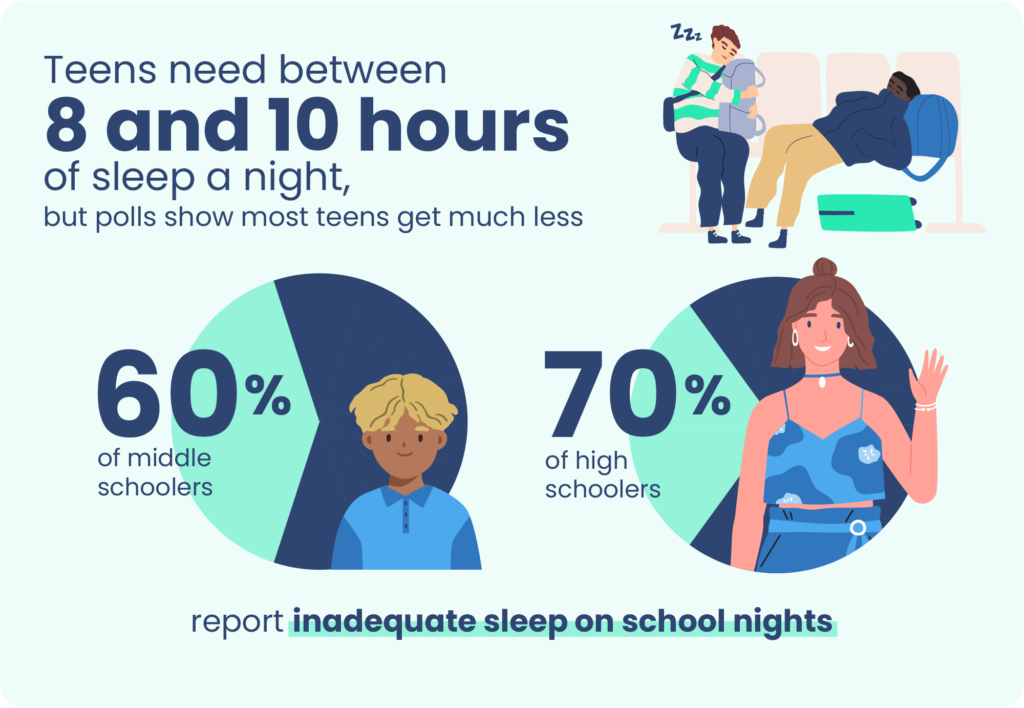Concerns about social media’s impact on youth mental health have led the US Surgeon General to propose a warning label for these platforms, particularly due to their potential effect on sleep quality. A new study in the Journal of Adolescent Health provides valuable insights into how screen habits can influence sleep among adolescents.
Key Recommendations for Better Sleep:
- Keep Screens Outside the Bedroom: The presence of a TV or internet-connected device in the bedroom is linked to shorter sleep duration. Ensuring that screens are kept out of the bedroom can help improve sleep quality.
- Turn Off the Phone: Leaving phone notifications on, even in silent mode, can disrupt sleep. The study found that keeping the phone completely off was associated with better sleep compared to leaving it on silent or vibrate. In fact, having the phone ringer on increases the risk of sleep disturbances by 25%.
- Avoid Electronic Devices Before Bed: Engaging in activities such as using social media, playing video games, or streaming content before sleep is associated with reduced sleep duration. To improve sleep, it’s advisable to avoid these activities in the hour leading up to bedtime.
- Don’t Use Devices if Waking Up During the Night: A significant portion of adolescents reported using their phones after waking up during the night, which is linked to less sleep. To avoid this, it’s better to refrain from engaging with devices if you wake up during the night.
Study Insights:
The research, which analyzed data from 9,398 preteens aged 11-12 from the Adolescent Brain Cognitive Development Study, highlights the prevalence of sleep disturbances among adolescents. Key findings include:
- 25% of preteens experienced sleep disturbances.
- 16.2% were woken by phone calls, texts, or emails at least once in the past week.
- 19.3% used their phones or other devices upon waking up during the night.
Expert Opinions:
Lead author Dr. Jason Nagata, an associate professor of pediatrics at the University of California, San Francisco, emphasizes the importance of adequate sleep for physical and mental growth. He notes that adolescents are particularly sensitive to phone notifications, which can disrupt sleep even if the phone is on silent.
Co-author Dr. Kyle T. Ganson, assistant professor at the University of Toronto, underscores the developmental challenges adolescents face and the need for supportive guidance in managing social media use.
Conclusion:
Adolescents and their parents can enhance sleep quality by implementing these measures, including keeping screens out of the bedroom, turning off phones, avoiding screen time before bed, and refraining from using devices if waking up during the night. These steps can help mitigate the negative impact of social media and electronic devices on sleep.



